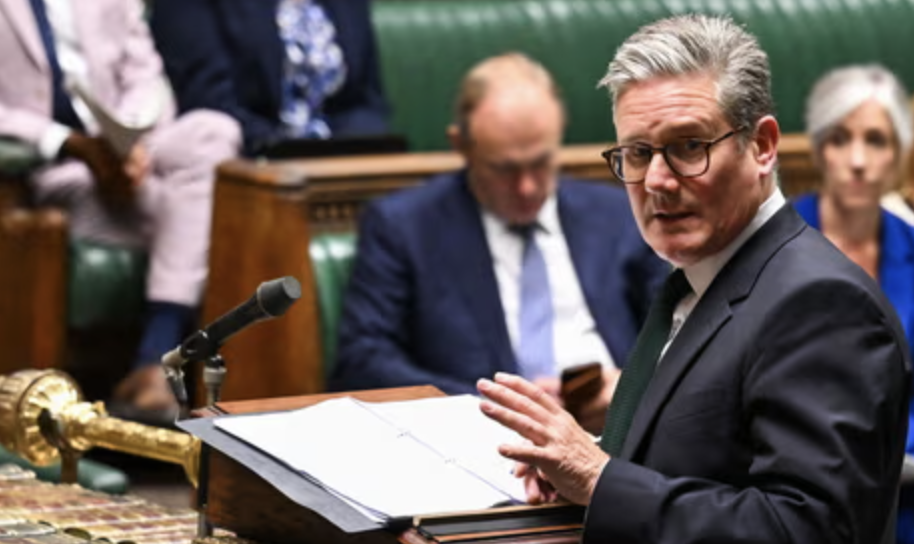In an unexpected move, Labour leader Keir Starmer has announced the cutting of the Winter Fuel Allowance, a decision that has swiftly ignited debates over his broader economic strategy. This polarizing policy shift has left many questioning whether it signals a more austere approach from the Labour Party.
The Winter Fuel Allowance: A Lifeline for Many
The Winter Fuel Allowance has long been regarded as a crucial support mechanism for millions of pensioners and vulnerable households across the United Kingdom. This benefit helps offset the high costs associated with heating homes during the colder months, ensuring that the nation’s elderly and economically disadvantaged don’t have to choose between warmth and other essentials.
Understanding the Impact
Starmer’s decision has raised several critical concerns:
- Financial strain: With energy prices already soaring, the removal of this allowance could push many families further into fuel poverty.
- Health risks: Older adults are particularly susceptible to cold-related illnesses. Reduced financial support might result in increased hospital admissions and pressure on already strained healthcare services.
- Economic ripple effects: This policy may have broader repercussions on the economy. Businesses dependent on winter heating products could see a drop in sales.
Treasury Brain: An Influence on Starmer’s Decision?
Political analysts suggest that Starmer’s move can be attributed to what some call “Treasury brain” — a term describing the inclination of politicians to prioritize fiscal conservatism and budget surpluses over social welfare programs.
What is Treasury Brain?
“Treasury brain” is a cultural phenomenon in political and economic decision-making where maintaining a balanced budget and demonstrating fiscal responsibility take precedence over social spending and welfare programs. This approach is often seen as a way to gain favor with financial markets and international investors, but it can come at the cost of reduced governmental support for the most vulnerable populations.
For Starmer and his advisers, adhering to this philosophy might be a strategic move to showcase Labour’s commitment to responsible economic governance. However, it’s a calculated risk that could alienate the party’s traditional support base.

Public Reaction and Political Ramifications
The public reaction to Starmer’s decision has been mixed, with a significant portion of his own party members voicing concerns:
- Labour backbenchers have expressed discontent, fearing that this could betray the party’s core values.
- Opposition parties are capitalizing on the controversy, arguing that this move highlights Labour’s abandonment of the working class.
- Activist groups and charities have called for the reversal of this policy, highlighting the dire consequences for those most in need.
Despite the backlash, some economists argue that this might be a necessary step to address the UK’s mounting debt and economic challenges. By making difficult decisions now, Starmer could be aiming to set a foundation for long-term fiscal stability.
What’s Next for Labour and the Public?
The debate over the Winter Fuel Allowance cut is emblematic of the broader challenges facing the Labour Party as it navigates the complex landscape of modern British politics. Balancing fiscal responsibility with social welfare commitments will be crucial as the party seeks to maintain its relevance and public support.
Amidst the uncertainty, one positive aspect remains clear — this issue has sparked a renewed discourse on the priorities and values that should guide the nation’s economic policies. As Starmer and his team navigate this tumultuous period, they have the opportunity to refine their approach and potentially unveil more targeted and effective support mechanisms for those in need.
Looking Forward
While the Winter Fuel Allowance cut has raised alarms and sparked debate, it also represents a critical juncture for the Labour Party. Through this decision, the party now faces the task of aligning its economic strategy with the needs and expectations of the British public.
Ultimately, challenging decisions require bold vision. If Labour can demonstrate a balanced approach that blends fiscal prudence with compassion and support, they may yet win over skeptics and emerge stronger on the political stage. In this period of reconsideration and realignment, there is potential for positive change and progress that benefits all segments of society.